Book by Book: An English Journey
Pickle Me This Digest: Holiday Report, Latest Book Reviews, and More!
Typically—being neither easygoing nor laid back—I leave little to chance, and certainly not in my reading life.
If you’ve ever packed a back-up book in your bag, you’ll know what I’m talking about, and if you’ve ever packed a back-up back-up book, well, you’re my kind of people.
Serendipity is nice, but being stuck with nothing (good) to read is my worst nightmare, which I’ll go out of my way to avoid every time...
Except for in precisely one circumstance, which is on a trip to England.
Fundamentally, this is about mathematics, calculations of risk and mass. In England (where days are measured in bookshops) the risk of being without a book is close to zero, making it advisable to travel with—instead of books—plenty of luggage capacity to be filled with all the books I will be bringing home.
So yes, I dare to go to England with scarcely* a book in my bag at all.
(And does this mean I am a little bit easygoing and laid back? Does it deliver me an iota of spontaneous fly-by-the-seat-of-my-pants cred?)
The only time this ever steers me wrong is at the airport, which is NOT ENGLAND, and while airport bookshops are great in theory, in practice (at Toronto’s Pearson International Airport, at least, named for former Prime Minister Lester B., winner of a Nobel Peace Prize for bringing the world from the brink of war during TROUBLE IN THE SUEZ) such outlets tend to be a shelf of unremarkable books for sale amidst neck pillows, gum, and air-pods.
The last two times I’ve started my English book journey at the airport, I’ve been dissatisfied. And even last week on our way to the gate, I found not a single novel to my specifications, which were “something that looked good by an English author.” (Such a possibility is why there is an asterisk beside the word “scarcely” two paragraphs above…)
BUT THEN…
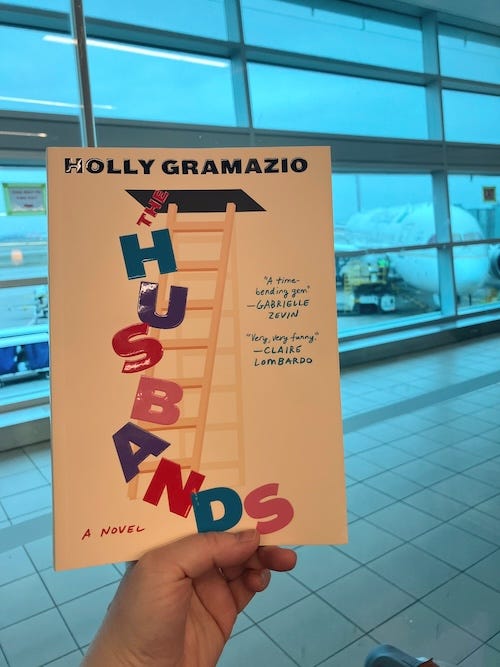
The magic begins with Holly Gramazio’s debut The Husbands, which I found at the kiosk near our gate, a book just released that day (it has since become a New York Times bestseller!). As I sum it up quite brilliantly in my Instagram post, think “Dolly Alderton’s fiction meets RUSSIAN DOLL meets THE FLATSHARE meets TOM’S MIDNIGHT GARDEN meets SLIDING DOORS meets LIFE AFTER LIFE meets a slice of BRIDGET JONES minus the self depreciation but all the humour.” It’s essentially a science fiction version of a modern relationship comedy, so deftly accomplished, and the author being an award-winning video game writer has something to do with that. The book was so much fun, and just as clever, about a single woman in her 30s arriving home from her best friend’s hen night to find a strange man in her flat who is…apparently her husband? And then he goes up into her attic and a different man comes down and he is also her husband? The attic somehow a portal for husbands of many varieties, one after the other, for better or for worse. How Gramazio manages to turn this premise into a plot that made me feel and think so much is a mighty feat, plus she kept it fresh even as the husbands numbered into the hundreds. What a thing. What a book! I positively DELIGHTED IN IT, read most of it on an overnight flight, and ever since I’ve been enthusiastically recommending it to everyone I meet.
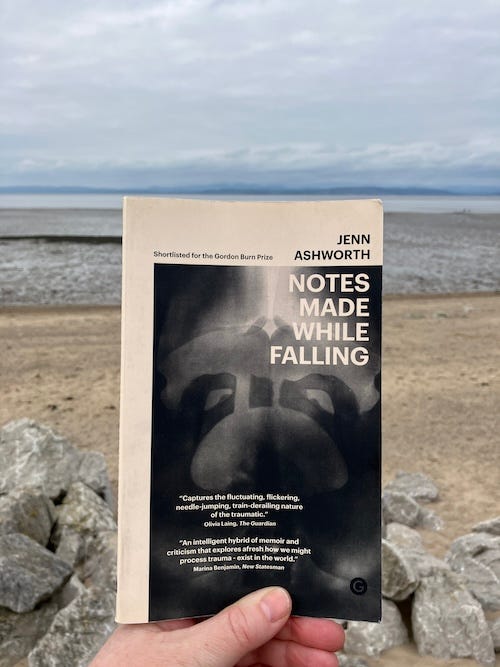
The book I read next was the very book that requires me to insert the word “scarcely” into the sentence “And so yes, I dare to go to England with scarcely* a book in my bag at all.” It’s Notes Made While Falling, by Jenn Ashworth, whose work I discovered two years ago while seeking authors from the Northwest of England, which is where my husband grew up, where his family still lives, and it’s the region we return to. Since then, I’ve enjoyed three of her novels and I’ve had this memoir waiting for me. And I don’t meant to imply that there’s anything “scarce” about it, though it is quite slim, the primary reason I packed it, along with the regional element. A memoir of a traumatic childbirth that left Ashworth with PTSD, piled on to her experiences growing up in a chaotic household, and coming of age in and then leaving the Mormon church, all of which leave her in such considerable trouble that she’s unable to write fiction. This is a novel about the telling of stories, the failure of stories to make sense of reality, about what it means to fail, to fall. To fall apart.
“To write or to pray or to find a home in falling means to give up hope entirely: to abandon the illusion that there’s a future moment that can be striven to, or imagined, or drunk or eaten or earned or run or cut or dreamed towards. It means here. There’s no cure for the chronic condition of human nature. These are the facts that I live with. I have always lived with them, but surrendering to them entirely is the thing that finally brings the fiction back: the will and capacity to imagine, the conditions of compassion and curiosity that are essential for inhabiting the mind of a sentence, a story, a fictional other.
How does Ashworth’s memoir connect to The Husbands, which is an entirely different literary specimen? Other than the fact that the two books are the exact same shade of off-white and mention roller coasters at Alton Towers? Mostly that while The Husbands is all about the construct of marriage and what it means to have one, Ashworth refers to her husband throughout her memoir as “the man I live with” until the final time he’s mentioned as “the man who today I live with, and soon, I will not.” In the gaps in this memoir is the story of the dissolution of a marriage, another kind of falling apart.
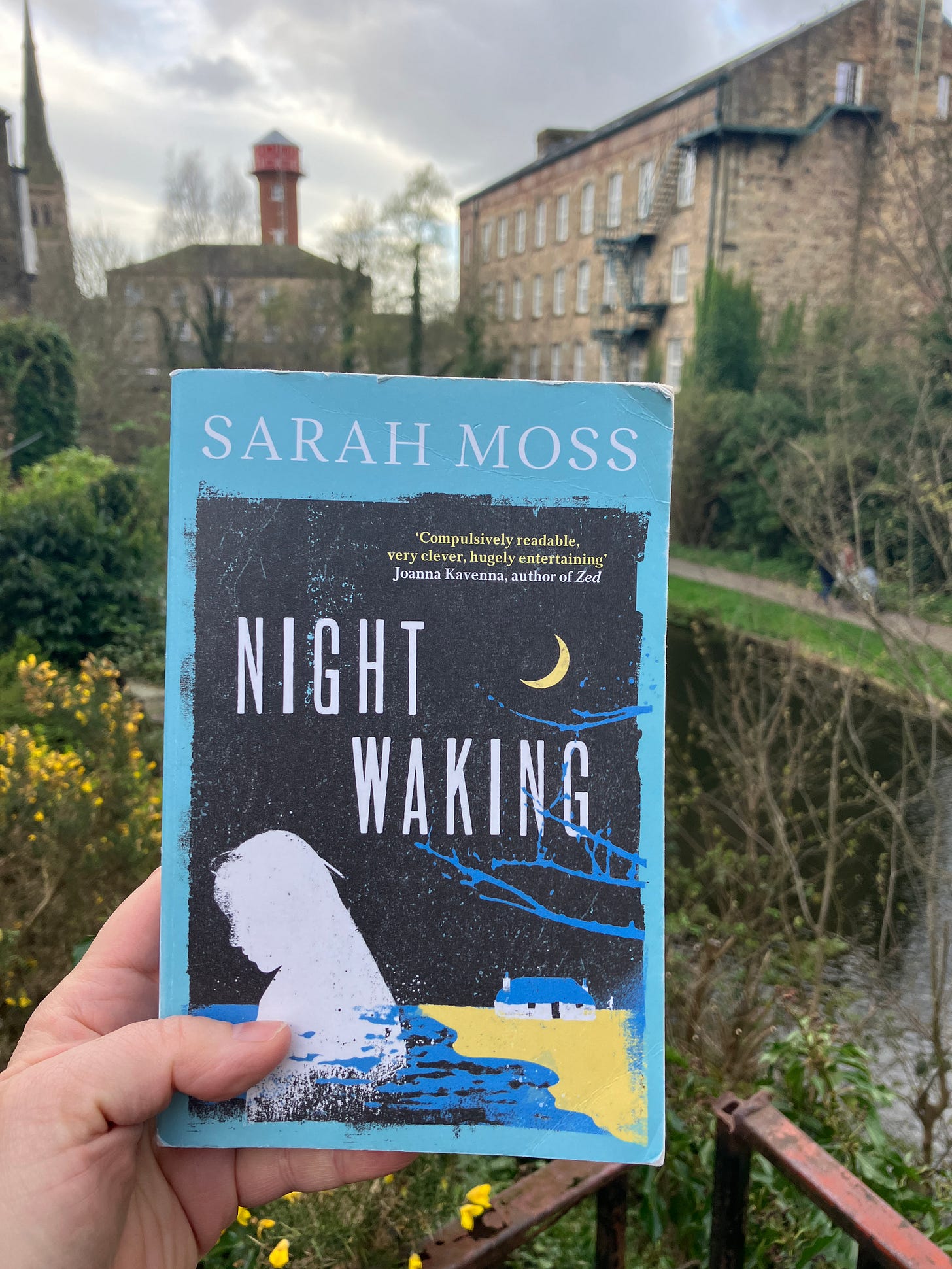
I still have vivid memories of reading Sarah Moss’s The Fell on our flight home from England in 2022, such an ideal reading experience (here I am trapped in the sky with nothing to do but read this book I adore!). I also really loved her two previous books, The Ghost Wall and Summerwater, and Rohan Maitzen’s writing about her work made me want to read her longer novels too. For some reason, however, they were hard to come by when I was looking, and I was only able to read Signs for Lost Children, and I found it boring. I’d wanted to read Night Waking though, so when I found a copy at Waterstones in Lancaster, I picked it up, and am I ever glad I did, because it’s wonderful. Set in the Hebrides where Anna—an Oxford fellow and mother of two—is struggling to finish her book and parent her children in her husband’s family home while he runs around the island counting puffins. The marriage in this book is a disaster, or so it seems—but the truth is more complicated, and the novel highlights how lack of sleep in parenthood can render everything tainted. Anna’s story is woven with that of a nurse who came to the island in the 19th century to encourage residents to adopt modern and more salubrious ways.
As Maitzen writes in her review: “I didn’t read Night Waking so badly that I couldn’t tell its parts are clearly all related, that they knit together into a pattern about the complexity of mother-child relationships and about motherhood as an intensely fraught role, both personally and socially. I just can’t articulate what that pattern is. Or maybe their collective point is not that intricate after all: maybe it is that, though we keep trying, it is impossible to “properly” understand or diagnose or theorize or perfect parenting: that really we all just muddle through in whatever way our historical and other circumstances dictate…”
It’s worth noting that I read most of this book on Saturday night while my husband was out and my children were downstairs doing…something?…and they entirely left me alone, and can I just express that having big kids is bliss?
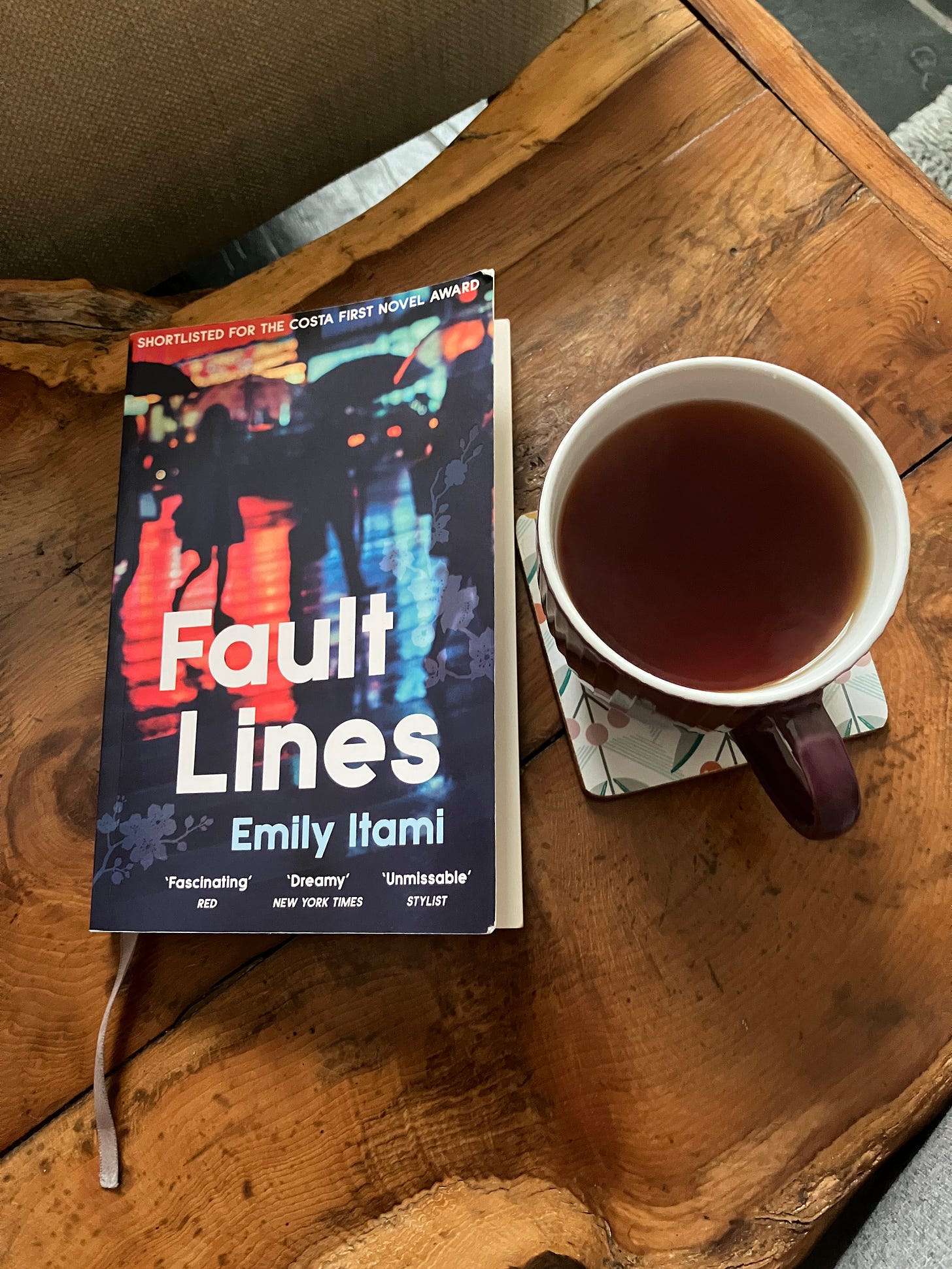
Mizuki in Emily Itami’s Fault Lines is also bogged down in the mire of parenting small people, and feeling strangled by the expectations of domesticity put on Japanese wives (who are almost always housewives—the book explains the kanji for wife literally means “inside the house,” while the kanji for husband means, “main person”) when she meets a charming stranger and dares to step outside the confines of her comfortable life in Tokyo and begin an affair. Fault Lines was recommended to me by
at the wonderful bookstore Storytellers Inc. in St. Anne’s On Sea (and oh my goodness, I hope you’ve read Katie’s latest “Receipts from the Bookshop,” in which my whole family features, though my youngest daughter Iris is truly the star) and I really appreciated reading a novel that was so English and Japanese at once, a depiction of modern Tokyo with less than usual lost in translation. (Itami grew up in Japan, now lives in London, and the novel was written in English.) Like Moss’s book, Fault Lines makes clear the impossible paradox of motherhood, that so much of it is untenable, and yet there is so much love irrevocably embedded in the agony, and the dread of losing one’s children is the biggest threat of all.I think part of the reason the airport bookshop disappoints is that I like to be surprised, but instead I find all the usual suspects there. I could have stayed home for a book like that. And so I was so happy to discover The Bay, by Julia Rampen, on the shelf at Carnforth Bookshop, published by an indie press, and a very local book—the bay in question is Morecambe Bay, which is bordered by many little towns, including the place where my husband grew up and the town of Morecambe itself, whose sea front we fell in love with on a visit last Thursday. But in 2004, the bay was site of a tragedy when 23 Chinese cockle pickers were killed by a dangerous tide, and while I was living in the UK at the time and remember the news headlines, there was so much I never knew or didn’t understand, as I realize after reading The Bay, which is firmly fiction, but inspired by the tragedy. A story told from two perspectives, that of an elderly widower who’d picked cockles himself as a young man and who has spent his life watching the town he comes from in decline, and that of a young Chinese woman who has paid large sums of money to be brought to be England for work but who finds herself in debt and beholden to sinister figures who only care about the labour they can get out of her. When these two people meet, an unlikely friendship transpires, and the novel is ultimately hopeful about the possibilities of human connection, the IMpossibility of anyone truly being “the other.” I read the whole thing on our journey home, and am so grateful I found it!
And then finally, All the Little Bird Hearts, by Viktoria Lloyd Barlow, recommended by Emily Devane at the The Grove Bookshop in Ilkley, West Yorkshire, longlisted for the 2023 Booker Prize. Another story of complicated motherhood, and otherness, in that Sunday, the novel’s protagonist (like the author herself) is autistic. Jenn Ashworth, in her memoir, writes about “apophenia,” a tendency to see patterns that others don’t or that might not exist (which is also a symptom of being a novelist), and I was reminded of the term when I read what Sunday says about herself: “My mind is an electrical and involuntary force. Everything touches many, many other things and these points of intersection are the only way in which the world can be properly understood.” A strange and unsettling novel that also turned out to be set in the Northwest, it tells the story of the arrival of new neighbours next door to Sunday and her teenage daughter, and the ways in which these new neighbours (who have a bit of the Tom and Daisy Buchanan about them) ultimately come between the mother-daughter pair. I enjoyed this book so much.
Thank you for reading this message which is so long that Substack warns me that it will be truncated in email inboxes, a message that I feel utterly compelled to write and send anyway, even though I am quite sure that it’s the content that no one is asking for, but I’m doing it for me, because I want to, which is the only reason I want to be doing anything online these days that is making me anything less than a million dollars.
If you liked this, then you’ll certainly enjoy my April essay, coming to paid subscribers at the end of the month, in which I’ll be exploring my unlikely beginnings as an Anglophile (his name is Mole, ADRIAN Mole), the time I ran away to England to find a husband, and why mid-20th century English novelists just really DO IT for me.
If you’re not a paid subscriber already, I hope you’ll come on board.
The M Word Turns 10!
Katherine Heiny Gave Me Permission.
Have you read my March essay yet? Available to all subscribers! Check it out here.
Latest BOOKSPO:
I’m thrilled to be bringing you my conversation with award-winning writer Leslie Shimotakahara about her new novel SISTERS OF THE SPRUCE, set during World War One in Haida Gwaii (then known as the Queen Charlotte Islands) and loosely inspired by her grandmother’s experiences. We talk about how the spirit of Charlotte Bronte’s classic JANE EYRE both infuses the novel’s atmosphere and also helped inspire its protagonist. Listen at Apple Podcasts or here on Substack.
Don’t miss other episodes:
Recommended Reads
I’ve been around for a little while, and I think it’s safe to say that Sharp Notions: Essays from the Stitching Life, edited by Marita Dachsel and Nancy Lee is the best literary anthology I’ve ever read. It’s a beautiful volume, as aesthetically as pleasing as you’d expect for a book about art, a beautifully crafted object in its own right, complete with colour photography of beadwork, quilts, Kelly S. Thompson’s knitted bull terrier, a conversation in embroidery, and needlepoint…. (Read the rest!)
Anna Julia Stainsby’s debut The Afterpains has been a hot topic of conversation in one of my group chats lately, so I was happy to get my hands on a copy and check it out for myself. It’s the story of three women and their respective experiences of motherhood and loss woven together with those of the people who love them, a testament to love and friendship, first and foremost, and the transformative possibilities of both... (Read the rest)
With her seventh book, The Gift Child, short story superstar Elaine McCluskey has pulled off a novel that’s as great as one of her sentences, which is saying a lot. It’s a novel in the form of a memoir by Harriett Swim, a photojournalist who lost her career when the bottom fell out of the industry, and lost her marriage around the same time for reasons she’ll eventually make clear, which is also to say that she is struggling. Age 52, she’s returned to her hometown of Dartmouth, NS, where she’s got a job at the casino and can’t help getting sucked into the vortex of her father, Stan, iconic news anchorman, philanderer, narcissist, pathological liar, and jerk…. (Read the rest)
The above is a screenshot of a comment I received from my amazing March manuscript consultation client. I have just ONE 2024 Manuscript Consultation Spot still available for this year. If you would like to work with me in November to help bring your manuscript to the next level, claim the spot today! (I charge $1500 plus tax for manuscripts up to 80,000 words. You will receive comprehensive feedback on your draft in the form of a detailed letter and an annotated manuscript, plus we’ll have a one hour virtual meeting to talk about my ideas and suggestions and get you excited and inspired to take on what’s next.). Learn more and find out what people are saying about this service.

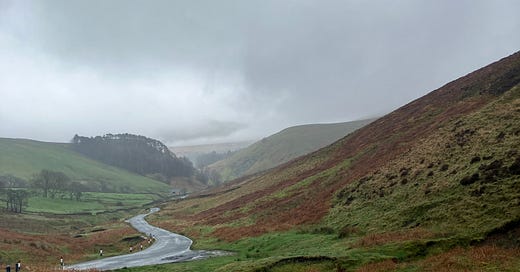



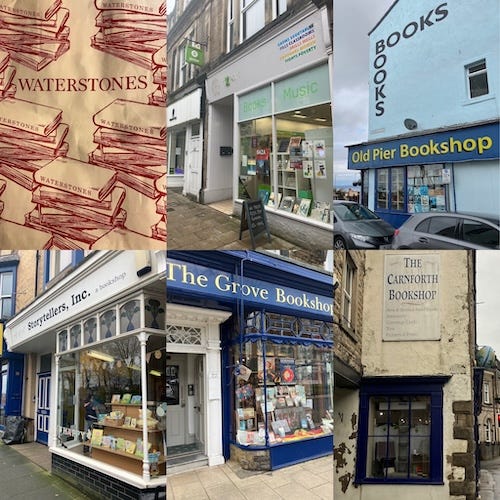
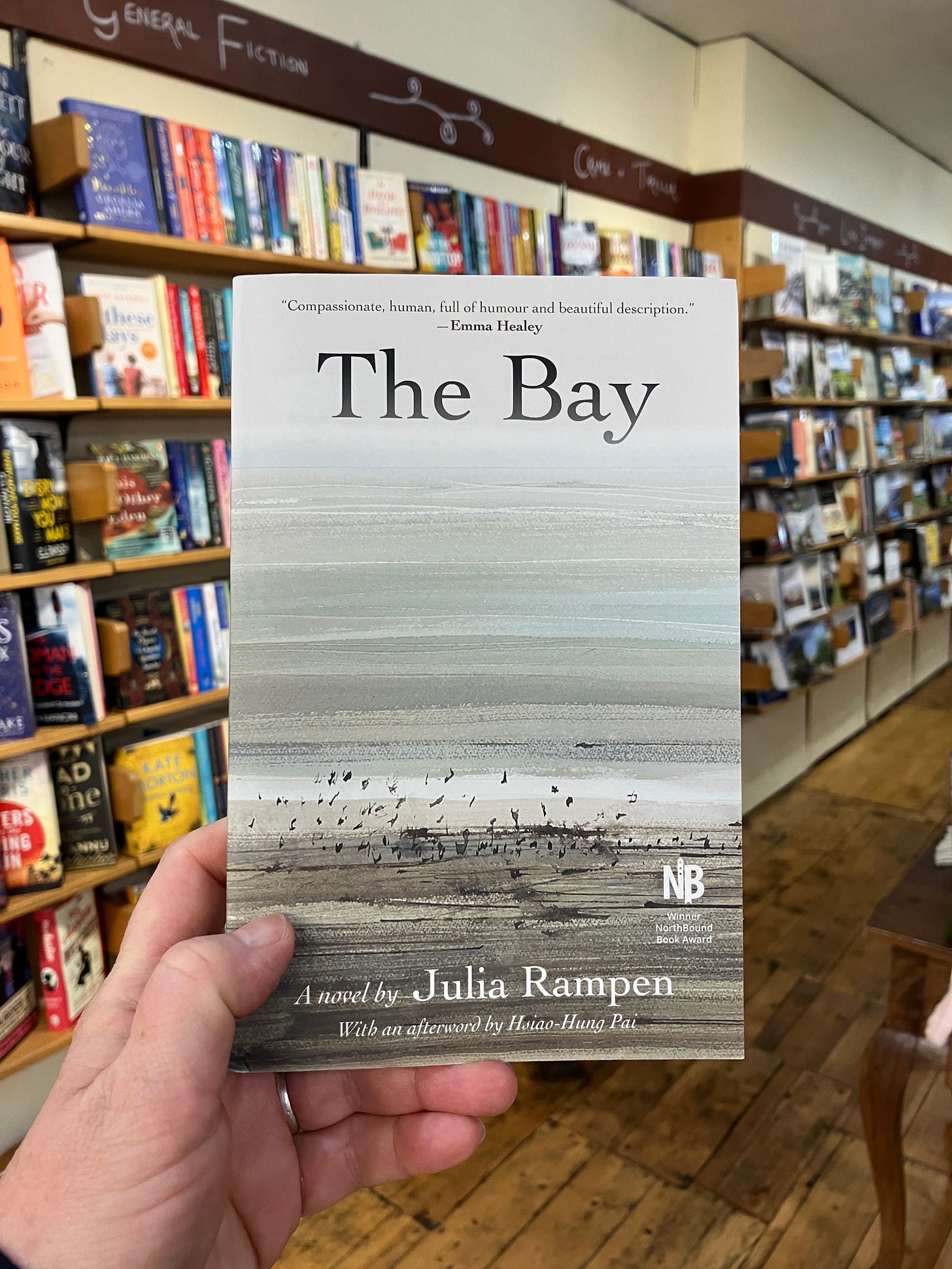
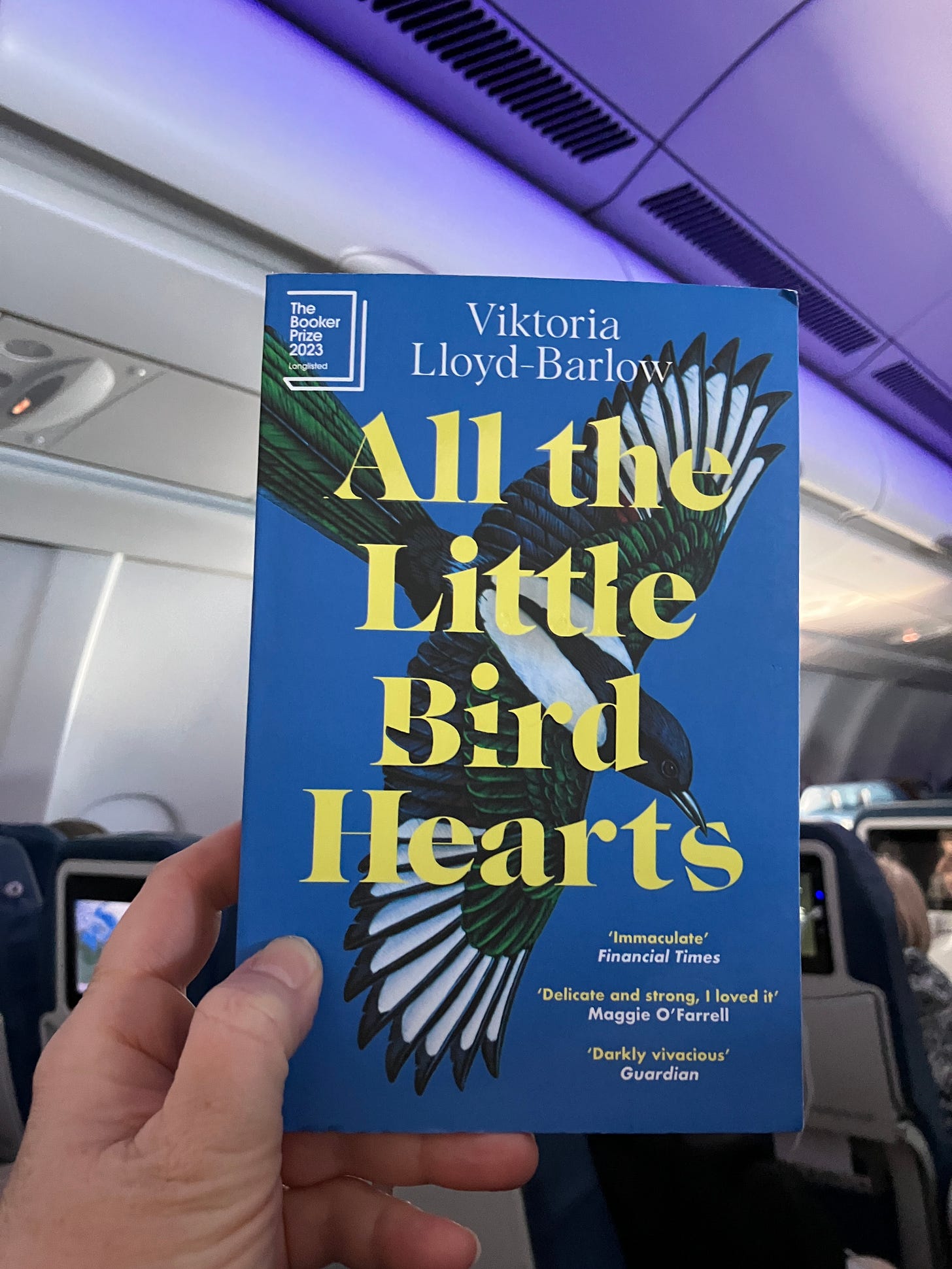
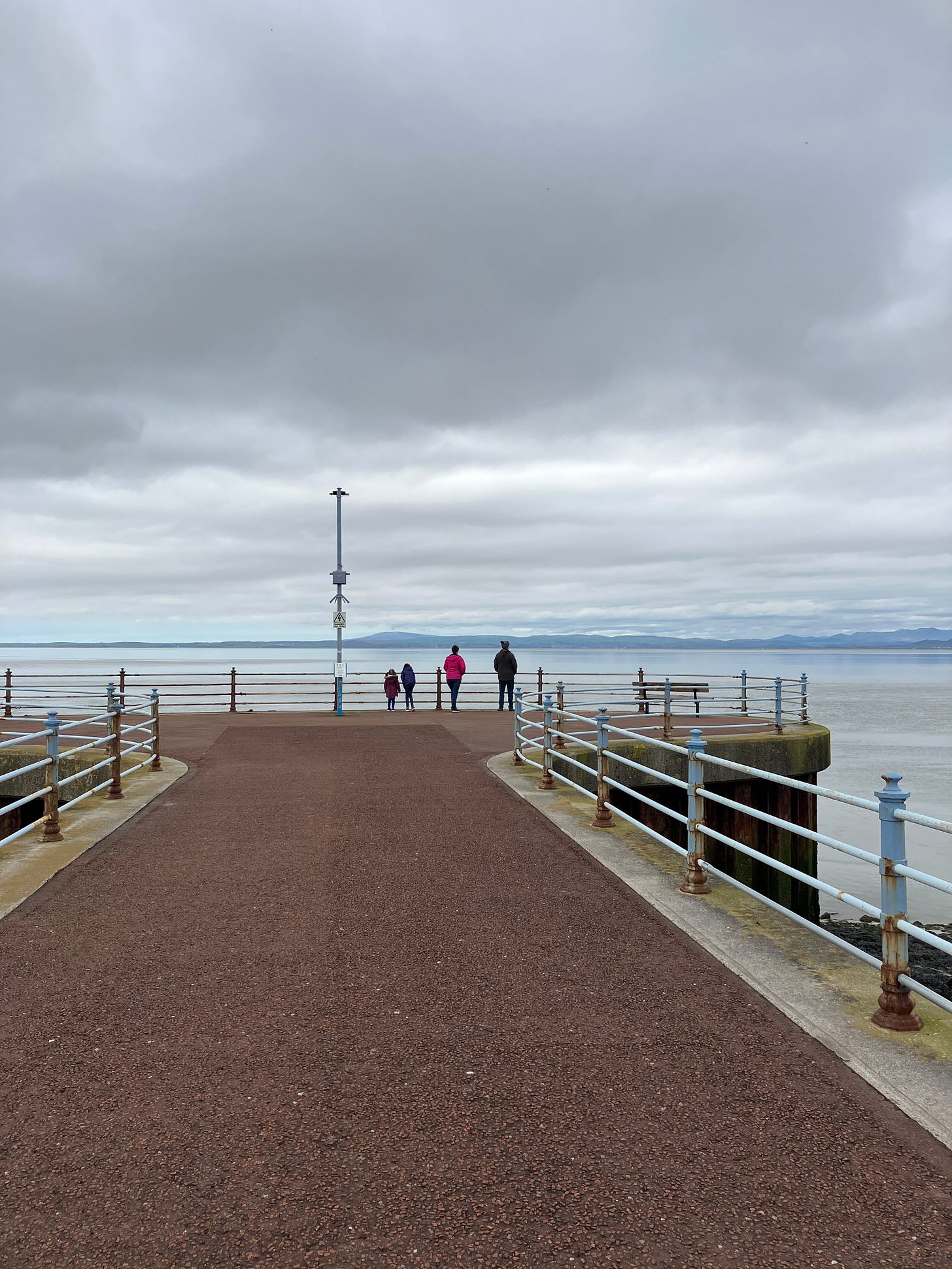
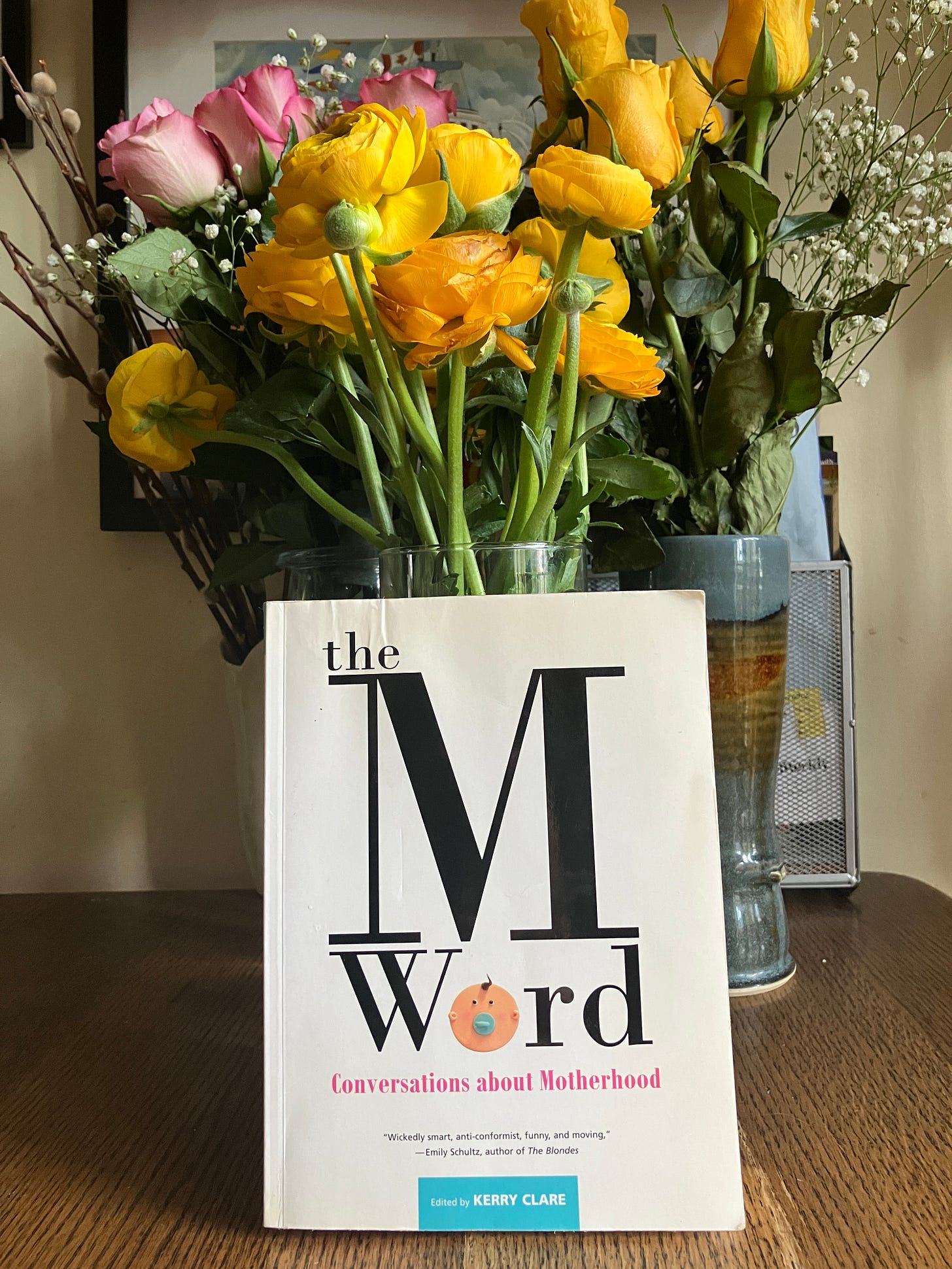
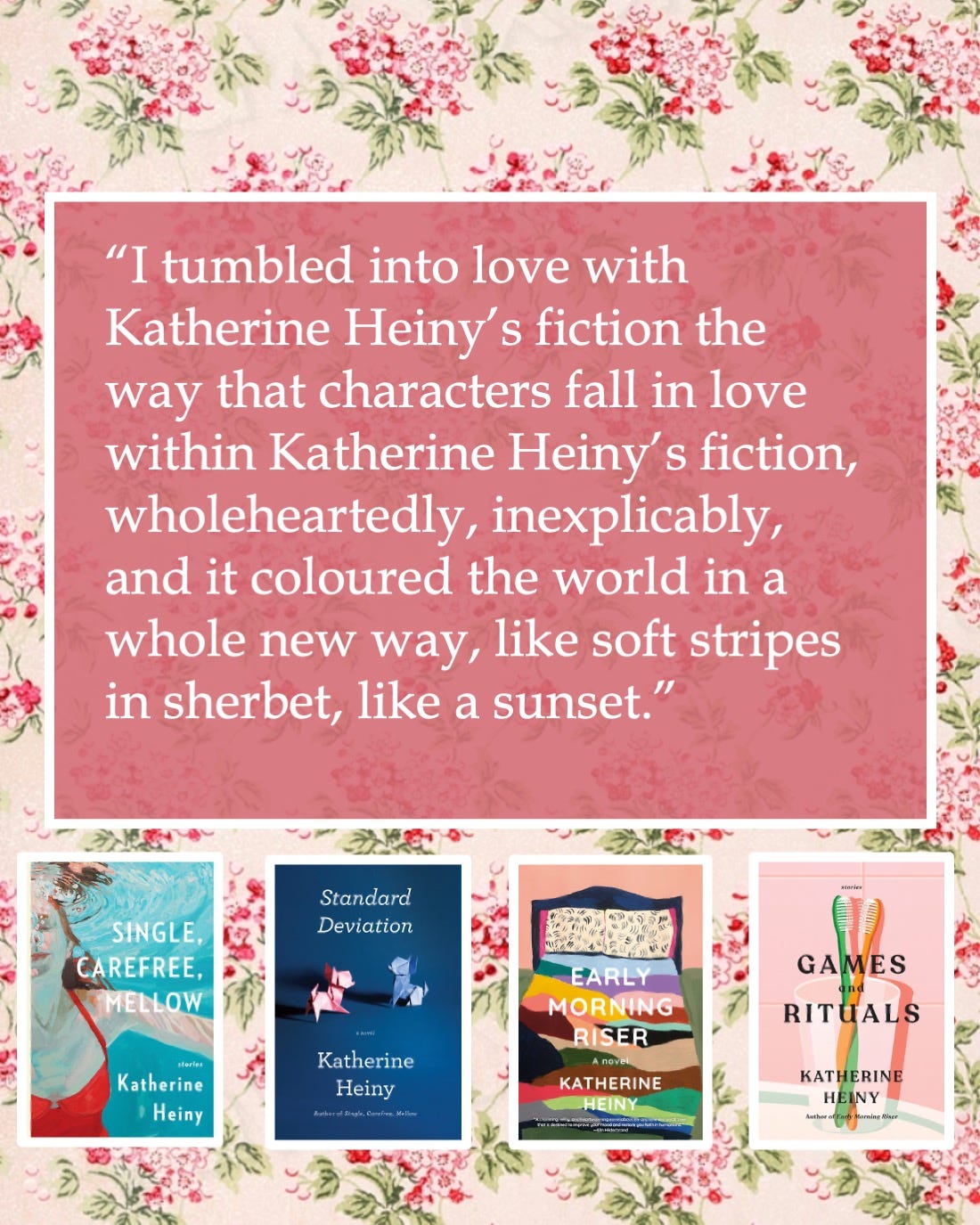
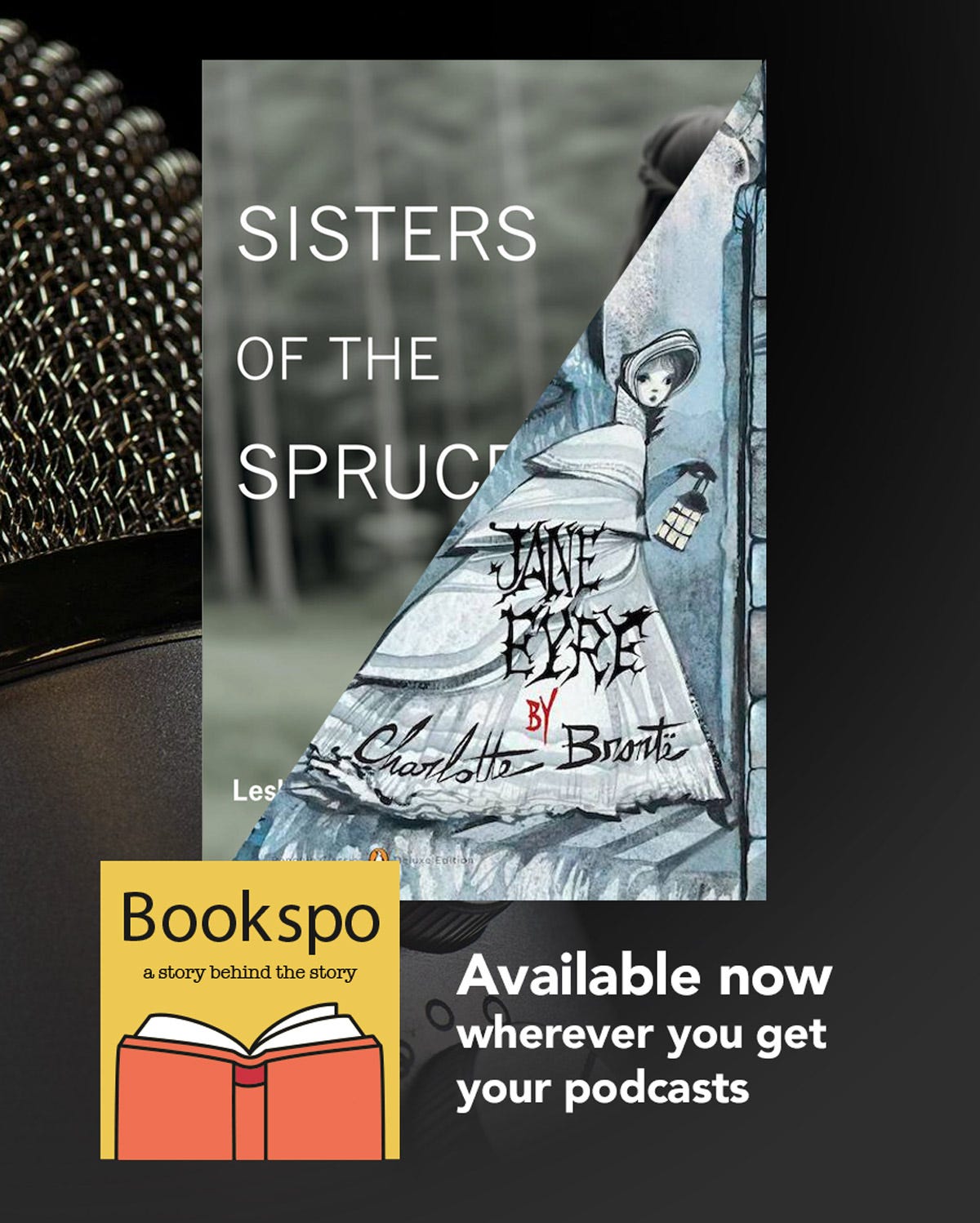
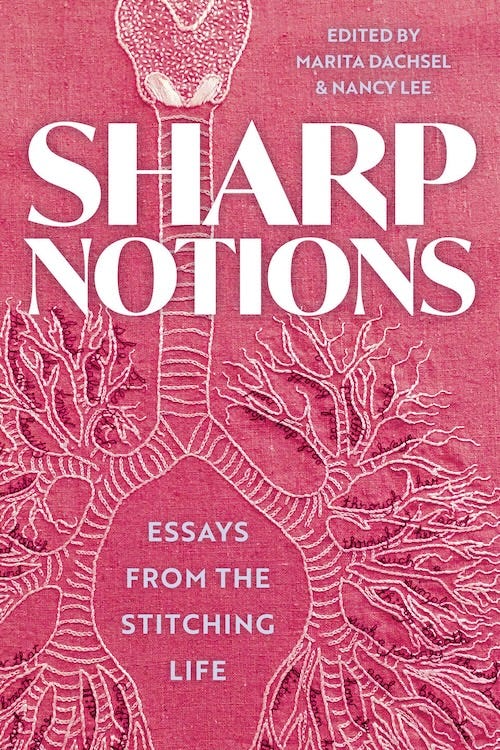
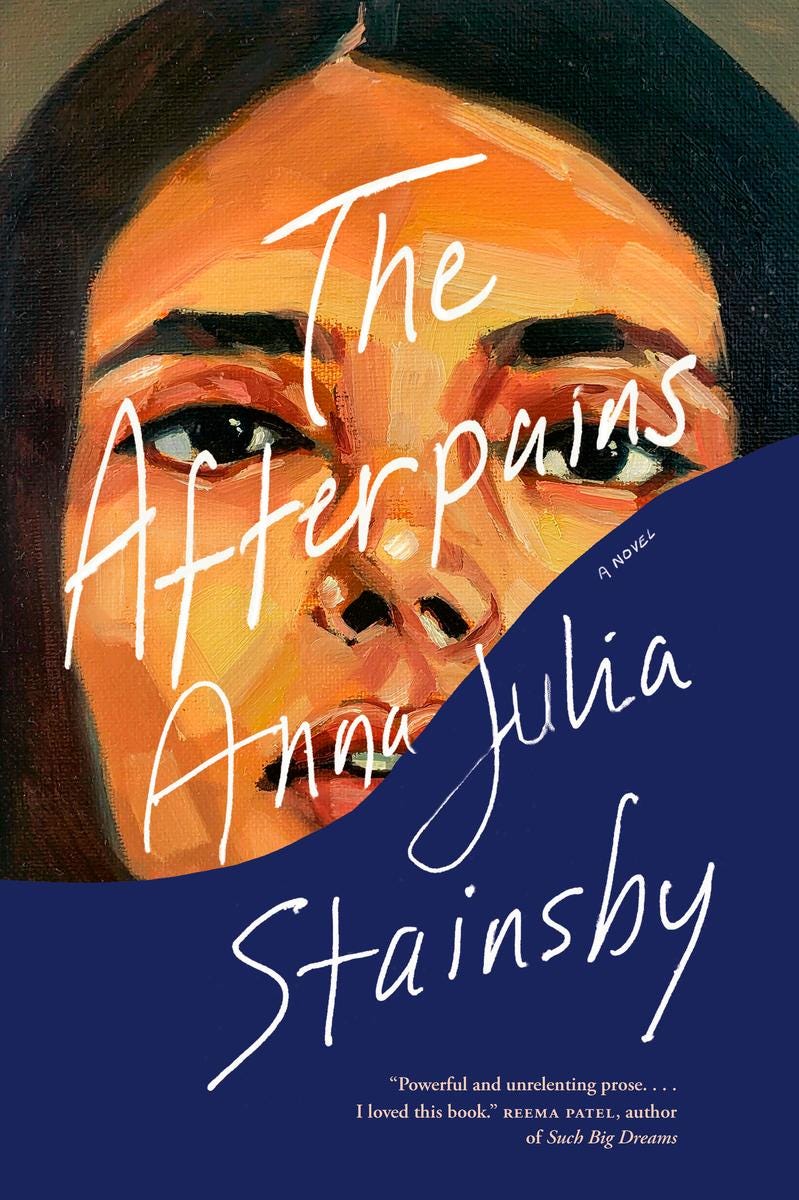
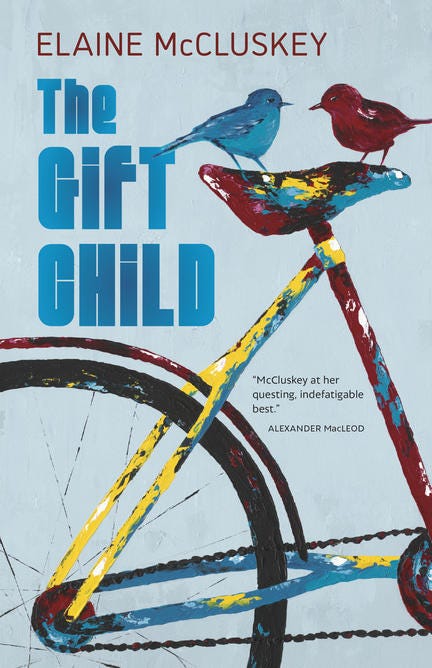

Traveling with four books. Just in case the place I travel to, which has books, doesn’t have the right ones.